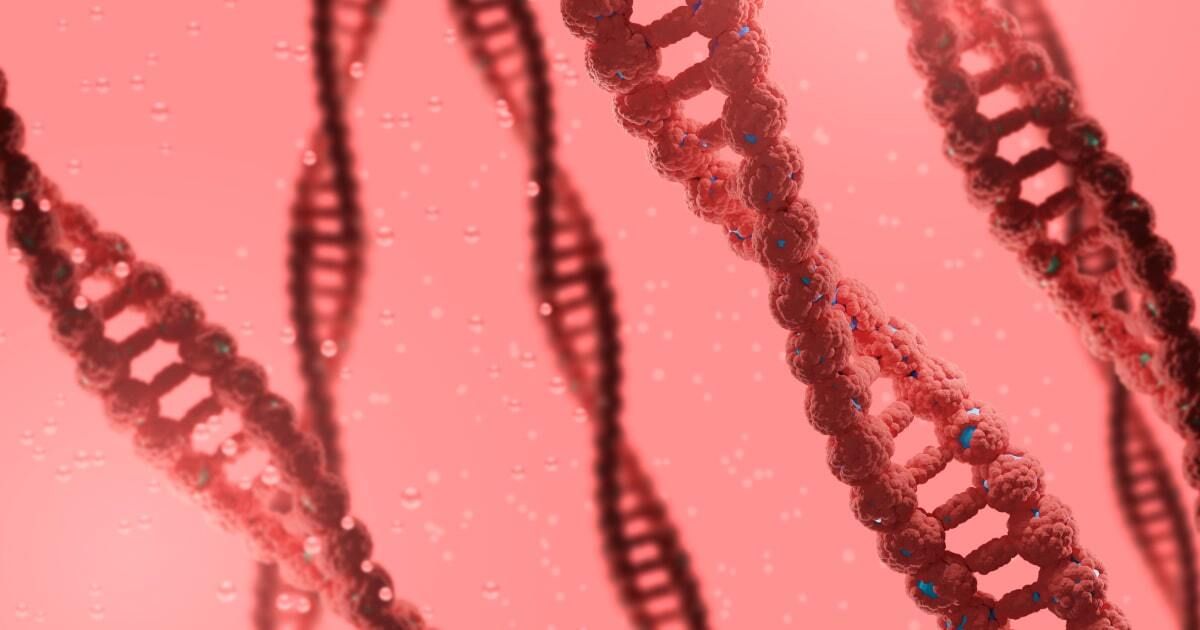Decoding the Enigma of ANO5-Related Disorders: A Dive into Genetic Testing

Expert Reviewed By: Dr. Brandon Colby MD
ANO5-related disorders are a group of rare genetic conditions that primarily affect the muscles. These disorders can manifest in various forms, such as distal myopathy, limb-girdle muscular dystrophy, and gnathodiaphyseal dysplasia. This article will provide an in-depth understanding of ANO5-related disorders, discuss the importance of genetic testing for diagnosis, and explore the potential benefits of genetic testing in managing these conditions.
Understanding ANO5-Related Disorders
ANO5-related disorders are caused by mutations in the ANO5 gene, which encodes a protein called anoctamin-5. This protein plays a crucial role in the proper functioning of muscle cells. When the ANO5 gene is mutated, the resulting protein is either nonfunctional or absent, leading to muscle weakness and wasting. The severity and progression of ANO5-related disorders can vary significantly between individuals, making it essential to have a comprehensive understanding of the underlying genetics.
Case Study: Hypertrophic Cardiomyopathy Complicated by Post-COVID-19 Myopericarditis in Patient with ANO5-Related Distal Myopathy
This case study highlights the complexity of ANO5-related disorders and the importance of genetic testing for accurate diagnosis. The patient, a 60-year-old male, presented with hypertrophic cardiomyopathy, conduction disorders, post-COVID-19 myopericarditis, and heart failure. Genetic testing revealed a late form of distal myopathy (MMD3), an ANO5-related disorder. This case underscores the necessity of considering genetic testing in patients with complex clinical presentations to ensure appropriate management and treatment.
Diagnosing ANO5-Related Disorders through Genetic Testing
Genetic testing is a powerful tool for diagnosing ANO5-related disorders, as it can identify the specific mutations in the ANO5 gene responsible for the condition. This information can help clinicians determine the precise type of ANO5-related disorder, predict its progression, and tailor treatment plans accordingly.
Benefits of Genetic Testing for ANO5-Related Disorders
Genetic testing can provide several benefits for individuals with ANO5-related disorders and their families:
- Accurate diagnosis: Identifying the specific mutations in the ANO5 gene can confirm the diagnosis of an ANO5-related disorder and differentiate it from other muscle diseases with similar symptoms.
- Prognosis: Understanding the specific genetic cause of an ANO5-related disorder can help predict its progression and inform treatment decisions.
- Family planning: Genetic testing can identify carriers of ANO5 gene mutations, providing valuable information for family planning and reproductive decision-making.
- Research: By contributing to the understanding of ANO5-related disorders, genetic testing can help advance research and potentially lead to the development of new treatments.
Using Genetic Testing to Inform Treatment and Management
While there is currently no cure for ANO5-related disorders, genetic testing can inform treatment and management strategies aimed at improving quality of life and slowing disease progression. Some potential therapeutic approaches for ANO5-related disorders include:
Neuroprotective Role of Melatonin in Alzheimer’s Disease
Although not directly related to ANO5-related disorders, this study highlights the potential of genetic testing to inform treatment strategies for genetic diseases. The research explores the genetic causes of Alzheimer’s disease and discusses the neuroprotective role of melatonin in reducing Aβ production and ameliorating neurotoxicity. This example demonstrates how understanding the genetic basis of a condition can lead to the development of targeted therapies.
Future Therapeutic Strategies
As our understanding of ANO5-related disorders continues to grow, so too does the potential for the development of targeted therapies. Genetic testing will play a critical role in identifying the precise genetic cause of an individual’s condition, enabling clinicians to tailor treatment plans and monitor the effectiveness of new therapies as they become available.
In conclusion, genetic testing is an invaluable tool for understanding, diagnosing, and managing ANO5-related disorders. By identifying the specific genetic mutations responsible for these conditions, clinicians can provide accurate diagnoses, predict disease progression, and inform treatment strategies. Furthermore, genetic testing can contribute to ongoing research efforts aimed at developing new therapies for ANO5-related disorders, ultimately improving the quality of life for affected individuals and their families.
About The Expert Reviewer
Dr. Brandon Colby MD is a US physician specializing in the personalized prevention of disease through the use of genomic technologies. He’s an expert in genetic testing, genetic analysis, and precision medicine. Dr. Colby is also the Founder of and the author of Outsmart Your Genes.
Dr. Colby holds an MD from the Mount Sinai School of Medicine, an MBA from Stanford University’s Graduate School of Business, and a degree in Genetics with Honors from the University of Michigan. He is an Affiliate Specialist of the American College of Medical Genetics and Genomics (ACMG), an Associate of the American College of Preventive Medicine (ACPM), and a member of the National Society of Genetic Counselors (NSGC)